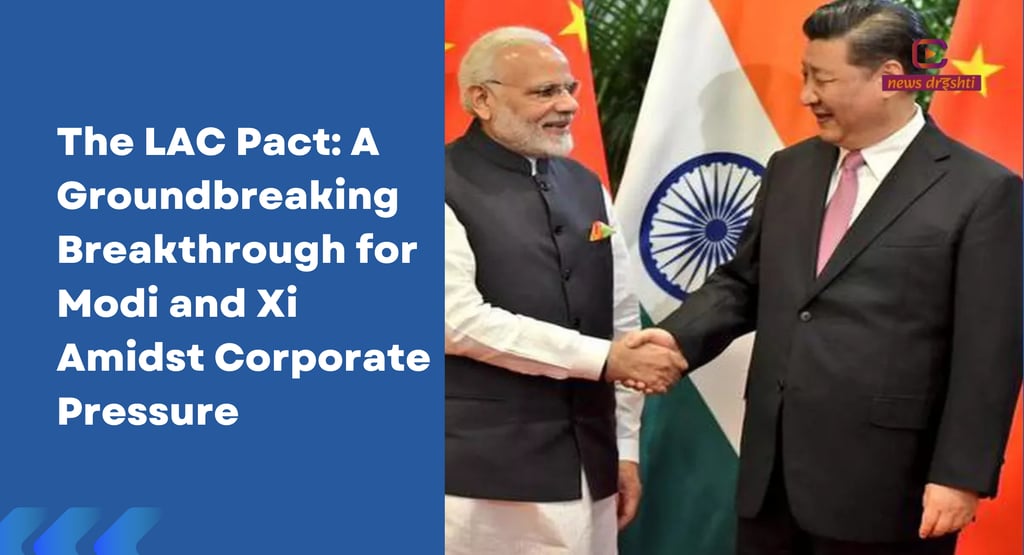The LAC Pact: A Groundbreaking Breakthrough for Modi and Xi Amidst Corporate Pressure
India and China have reached a historic agreement with the LAC Pact, signaling a new era of cooperation between the two nations. Facilitated by diplomatic efforts and corporate influence, this breakthrough is set to strengthen economic ties, promote regional stability, and shape future relations between the Asian giants.
INTERNATIONAL


A Historic Moment for India and China
The recent agreement reached between Indian Prime Minister Narendra Modi and Chinese President Xi Jinping, known as the LAC Pact, marks a significant turning point in diplomatic relations between the two Asian giants. After months of intense negotiations and persistent advocacy from Indian CEOs, this breakthrough is poised to reshape economic collaboration and foster stability in a region often fraught with tension.
Corporate Influence on Diplomacy
The role of business leaders in the diplomatic landscape has never been more evident than in this instance. Following heightened border tensions and economic uncertainty, Indian CEOs rallied for constructive dialogue to alleviate fears and pave the way for increased trade and cooperation. It was their strategic lobbying and the publication of pivotal reports that propelled the urgency for a resolution, demonstrating the power of corporate influence in international relations.
Implications for the Future
The LAC Pact is not merely a diplomatic formality; it carries substantial implications for both nations' economies. As both leaders commit to enhanced trade practices and a renewed focus on bilateral cooperation, this landmark agreement is expected to stimulate investment flows, create jobs, and ultimately bolster the economic fabric of both countries. The multinational corporations involved stand to gain immensely, providing new opportunities that may have been hindered previously by geopolitical tensions.
This development is closely monitored by international observers, who are keen to explore how it might influence the regional balance of power. The efforts driven by the voices of Indian corporate leaders underscore a growing sentiment that business will play a crucial role in fostering peace and collaboration in Asia.
As Modi and Xi embark on the path paved by this LAC Pact, the eyes of the world will watch intently to see whether this breakthrough can lead to further advancements in relations not just bilaterally but within the wider context of international diplomacy. Both nations stand at a crossroads, where the opportunity for economic and political reconciliation could redefine their futures. In the days ahead, the hope remains that this agreement heralds a new chapter of cooperation and mutual respect, driven by the enterprise of business and the commitment to peace.
